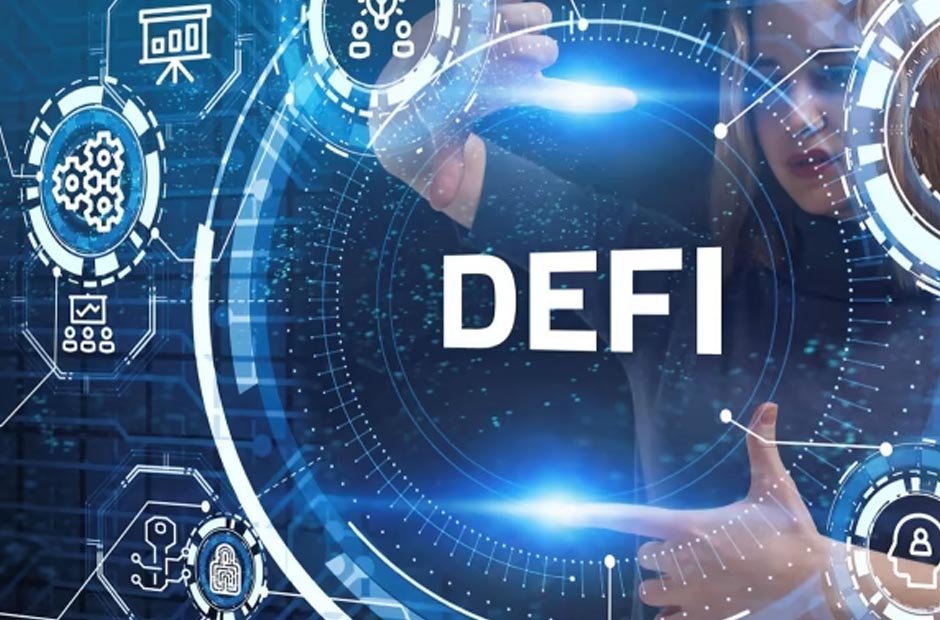The world of finance is undergoing a revolutionary transformation with the rise of Decentralized Finance (DeFi). This emerging sector, built on the foundation of blockchain technology, is reshaping how we think about financial transactions and services. However, with this innovation comes new challenges, particularly in the realm of smart contract security. In this comprehensive guide, we delve into the intricacies of DeFi, the role of smart contracts, and the risks they pose, offering insights into how to navigate this dynamic landscape safely.
Introduction to DeFi and Its Growing Importance
Decentralized Finance, commonly referred to as DeFi, represents a paradigm shift in the financial sector. It moves away from traditional, centralized financial systems to a decentralized model, leveraging blockchain technology. This shift not only democratizes finance but also introduces a level of transparency and accessibility previously unattainable. As DeFi continues to gain traction, understanding its mechanisms and inherent risks becomes increasingly important for participants and investors alike.
Understanding Smart Contracts in DeFi
At the heart of DeFi are smart contracts – self-executing contracts with the terms of the agreement directly written into code. These digital contracts automate transactions and enforce agreements, eliminating the need for intermediaries. Smart contracts are pivotal in DeFi, enabling functionalities such as lending, borrowing, and yield farming. Their reliability and security are crucial, as they directly handle and manage assets within the DeFi ecosystem.
Common Risks Associated with DeFi Smart Contracts
Despite their benefits, DeFi smart contracts are not immune to risks. Vulnerabilities in smart contract code can lead to significant financial losses. Common risks include:
- Coding Errors and Bugs: Simple mistakes in code can have far-reaching consequences, potentially leading to the loss of funds.
- Reentrancy Attacks: A notorious risk where an attacker can withdraw funds repeatedly before the initial transaction is settled.
- Flash Loan Attacks: These involve borrowing large amounts of cryptocurrency in a single transaction to manipulate market prices.
These risks underscore the importance of thorough smart contract auditing. The smart contract auditing price can vary, but investing in a comprehensive audit is crucial for mitigating these risks.
Key Security Challenges in DeFi
The DeFi landscape presents unique security challenges:
- Complex Protocols: DeFi protocols are often complex, with intricate interactions between multiple smart contracts. This complexity can obscure vulnerabilities.
- Interoperability Risks: As DeFi platforms interact with each other, vulnerabilities in one can potentially compromise others.
- Rapid Innovation: The fast pace of innovation in DeFi can sometimes outpace security considerations, leading to vulnerabilities.
Addressing these challenges requires a proactive approach to security. Smart contract auditing companies play a critical role in this regard. They offer services to review and enhance the security of DeFi smart contracts. The smart contract auditing cost is a worthwhile investment for any DeFi project, ensuring the security and integrity of its operations.
Best Practices for Smart Contract Security in DeFi
To ensure the security of smart contracts in the DeFi space, several best practices must be adhered to:
- Rigorous Testing and Auditing: Before deployment, smart contracts should undergo extensive testing and auditing. This includes both automated testing and manual code review by experts. The cost of smart contract auditing, while variable, is a critical investment in ensuring the security and reliability of DeFi applications.
- Code Simplicity and Clarity: Keeping the smart contract code as simple and clear as possible can significantly reduce the risk of vulnerabilities. Complex and convoluted code is more prone to errors and harder to audit effectively.
- Regular Updates and Maintenance: DeFi is a rapidly evolving field, and smart contracts may need updates to stay secure. Regular maintenance and updates in response to newly discovered vulnerabilities or emerging best practices are essential.
Advanced Security Measures for DeFi Platforms
As DeFi platforms grow in complexity and value, advanced security measures become increasingly important:
- Automated Vulnerability Detection: Utilizing automated auditing tools for vulnerability detection can help identify potential security flaws early in the development process. These tools can scan the code for known vulnerabilities and patterns that may lead to security issues.
- Decentralized Auditing and Bug Bounties: Engaging the wider community through decentralized auditing processes and bug bounty programs can help uncover vulnerabilities that internal audits might miss. This approach leverages collective expertise and incentivizes the discovery and reporting of security issues.
- Layered Security Approaches: Implementing a layered security approach, where multiple security measures are employed in tandem, can provide a more robust defense against potential attacks. This might include combining smart contract audits with real-time monitoring and anomaly detection systems.
The Future of DeFi Security
Looking ahead, the future of DeFi security is likely to be shaped by several key trends:
- Integration of AI and Machine Learning: The use of artificial intelligence and machine learning in security protocols is expected to increase. These technologies can help in predicting and identifying potential security breaches before they occur.
- Enhanced Regulatory Frameworks: As DeFi continues to grow, regulatory bodies are likely to develop more comprehensive frameworks to ensure the security and stability of these platforms. This could include standardized security protocols and mandatory audits.
- Cross-Chain Security Solutions: As interoperability between different blockchain networks becomes more common, cross-chain security solutions will become crucial. These solutions will need to address the unique challenges posed by interacting with multiple blockchains.
Conclusion
In conclusion, while DeFi offers a transformative potential for the financial sector, it also brings with it a host of security challenges. Understanding these risks and employing best practices and advanced security measures is crucial for the sustainable growth of DeFi. As the sector continues to evolve, staying abreast of the latest developments in security will be essential for all participants in the DeFi ecosystem. The future of DeFi security looks promising, with advancements in technology and regulation expected further to bolster the safety and reliability of these innovative platforms.
















